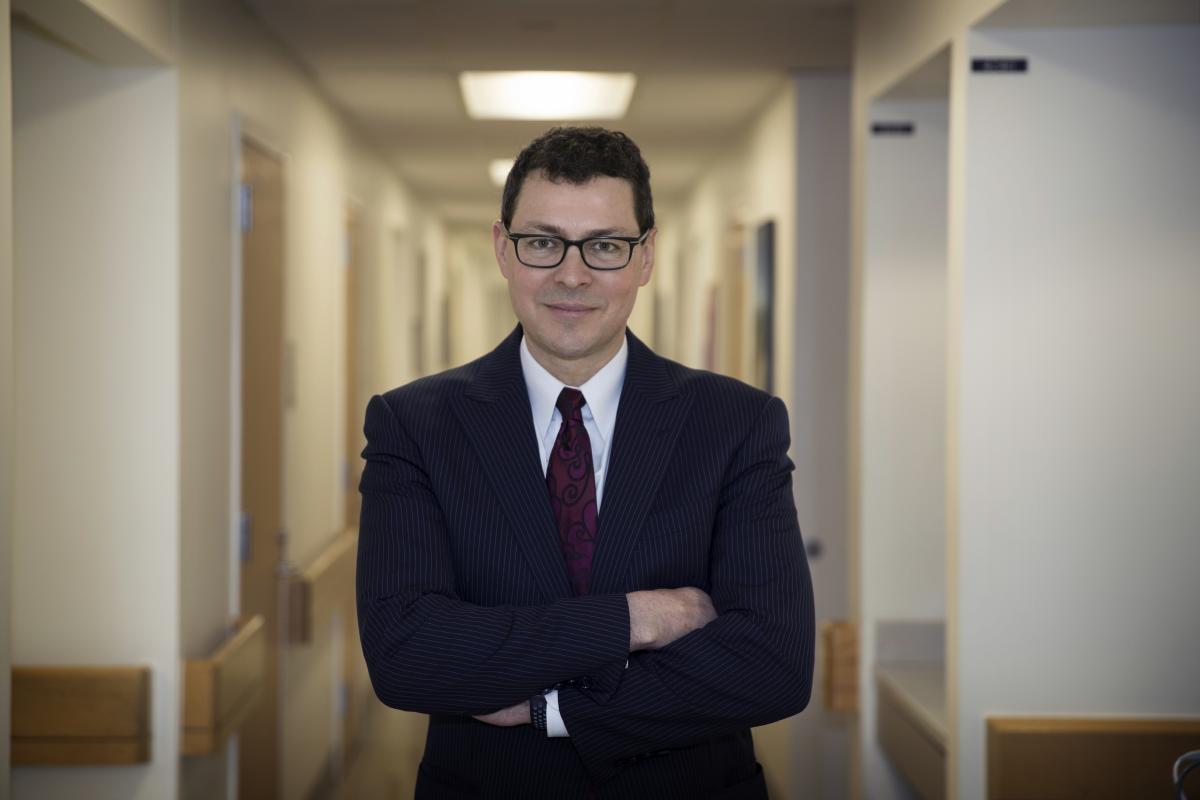In The Spotlight: José Oberholzer, MD
Having performed more than 1,000 transplant-related surgeries, José Oberholzer, MD, brings experience and innovation to UVA’s Charles O. Strickler Transplant Center. A pioneer in robotic surgery and an expert in liver, kidney, pancreas, and small bowel transplants, as well as a leader in transplants and research for diabetic patients, Oberholzer will lead the development of UVA’s multidisciplinary Virginia Transplant Institute.
Q. What attracted you to UVA?
A. UVA’s School of Medicine and Health System share a vision of their priorities. In transplantation, all of the players must be on the same team. You can’t do anything alone. It’s all team-based.
Q. How have robotics changed transplant surgery?
A. The robot reduces the learning curve for new surgeons and allows movement inside the body that is impossible with normal laparoscopic instruments. The robot has mini-hands that you can move in all directions—even more movements than you could make with your own hands. That allows us to take on cases that we might not consider for normal laparoscopic surgery. It is also less invasive and lowers many of the risks associated with traditional surgery.
Q. What are some innovations you forsee at UVA?
A. Developing a multidisciplinary transplant institute will allow us to open new doors. For example, UVA’s heart transplant program has been hesitant to treat heart failure patients who also have kidney failure. Many dialysis units don’t know how to handle those patients. It could be possible to explore new options and bring disciplines together to treat that patient population. We are also looking at new strategies to keep more organs viable for transplant.
Q. How will your work impact diabetes?
A. I’m interested in treating diabetes by using cell therapy technologies that replace cells in the pancreas. UVA has tremendous brainpower in diabetes technologies and is building a large cell therapy unit. That’s something I’ve been doing for 20 years. I’m in the process of getting FDA approval for a cell therapy for juvenile diabetes that will be the first approved cell product for diabetes in the U.S.
Q. What do you wish more people knew about transplants?
A. Some people think transplantation is uncommon and rarely done. In reality, transplant has become the standard of care for many diseases—heart failure, diabetes, and various lung, liver, and kidney diseases. Outcomes from an organ transplant are amazingly good. For the donor, organ transplant lets an individual make one last altruistic act and give another person a second lease on life. That’s the beauty of transplantation. It’s a pure, altruistic act.

